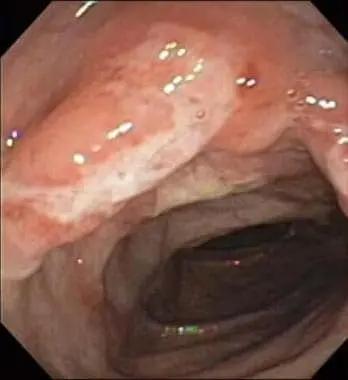Crohn’s disease, a chronic type of inflammatory bowel disease, has long been associated with a higher risk of death. This lifelong condition, characterised by unpredictable flare-ups and remissions, can severely impact an individual’s quality of life. The potential complications of Crohn’s can lead to life-threatening complications and significantly affect life expectancy. In this article, we look into the relationship between Crohn’s disease and mortality, highlighting factors that influence survival rates and the measures that can be taken to reduce the risks.
Understanding Crohn’s Disease
Crohn’s disease is an autoimmune disorder that triggers an excessive immune response, leading to inflammation and irritation within the digestive tract. This chronic condition can affect any part of the gastrointestinal system, from the mouth to the anus, but most commonly targets the small and large intestines. The exact causes of Crohn’s disease remain unknown, but researchers believe that a combination of genetics, environmental factors, and an overactive immune system plays a central role in its development.
Symptoms of Crohn’s Disease
The symptoms of Crohn’s disease can vary in severity and may fluctuate between periods of remission and flare-ups. Common symptoms include:
- Diarrhoea
- Abdominal pain and cramping
- Fever
- Tiredness
- Rectal bleeding (blood in stools)
- Mouth ulcers
- Reduced appetite and weight loss
Other symptoms
Crohn’s disease is not limited to the digestive system; it can also affect other parts of the body, leading to a range of extraintestinal manifestations. These can include joint pain, eye inflammation, skin conditions, and even liver complications.
Complications
Crohn’s disease can also give rise to a range of complications and associated illnesses, further exacerbating the challenges faced by those living with the condition.
- Fissures and fistulas (abscesses)
- Strictures and bowel obstructions (intestinal obstruction)
The impact of Crohn’s Disease on death rates
Studies have shown that individuals with Crohn’s disease exhibit higher mortality rates compared to the general population.
In a study conducted by the European Collaborative Study Group of Inflammatory Bowel Disease (EC-IBD), researchers followed 371 newly diagnosed Crohn’s disease patients across 20 European and Israeli centres. After a follow-up period of approximately 10 years, the standardised mortality ratio (SMR) – a measure of relative mortality risk – was found to be 1.85, indicating an 85% higher mortality rate compared to the expected rate in the general population.
Geographic variations
The EC-IBD study also revealed demographic variations in mortality rates among Crohn’s disease patients. Northern European centres showed a higher SMR of 2.0, while southern centres had a slightly lower SMR of 1.6, though this difference was not statistically significant. These regional variations highlight the potential influence of environmental factors, lifestyle choices, and healthcare access on disease outcomes.
Risk factors
Other studies have highlighted additional risk factors that may contribute to increased mortality rates in Crohn’s disease patients. These factors include:
Smoking and lifestyle factors
Cigarette smoking has been consistently linked to an increased risk of flare-ups and serious complications in Crohn’s disease patients. Additionally, lifestyle factors like poor nutrition, stress, and lack of physical activity may worsen the disease’s progression and impact overall health.
Medication and treatment adherence
Missing doses of prescribed medications and treatment regimens can contribute to disease flare-ups, complications, and potentially increased mortality rates.
Causes of death in Crohn’s Disease patients
While Crohn’s disease itself is not directly life-threatening, the complications and associated conditions that arise from the disease can contribute to mortality. The EC-IBD study found that approximately 38% of deaths among Crohn’s disease patients were directly or potentially related to the disease itself. These causes included gastrointestinal complications, such as sepsis, toxic megacolon, and bowel infarction.
Strategies for improving survival and quality of life
While the mortality risk associated with Crohn’s disease is undeniable, some strategies and interventions can help mitigate this risk and improve overall survival and quality of life for patients.
Early and aggressive treatment
Emerging evidence suggests that early and aggressive treatment approaches, such as the “top-down” strategy, may be more effective in achieving sustained remission and preventing disease progression compared to traditional “step-up” approaches. By targeting the underlying inflammatory processes early on, the risk of complications and associated mortality may be reduced.
Lifestyle changes
Adopting a healthy lifestyle can play a pivotal role in managing Crohn’s disease and reducing the risk of complications. This includes quitting smoking, maintaining a balanced diet tailored to individual needs, engaging in regular physical activity, and practising stress-management techniques.
Medication adherence
Following treatment plans for prescribed medications such as biologics, and corticosteroids and regular monitoring by healthcare professionals are important for effective disease management. Patients should work closely with their healthcare team to identify the most appropriate treatment regimen and address any concerns or side effects promptly.
Prevention
Regular colonoscopies and other preventive screening measures can aid in the early detection of potential complications, such as colorectal cancer, which may contribute to increased mortality rates in Crohn’s disease patients.
Ongoing research
While the current understanding of Crohn’s disease and its impact on mortality is substantial, ongoing research efforts are essential to further refine our knowledge and develop more effective treatment strategies. Advancements in areas such as personalised medicine, targeted therapies, and a deeper understanding of the disease’s underlying mechanisms hold promise for improving patient outcomes and reducing the burden of mortality associated with this chronic condition.
Conclusion
Crohn’s disease presents significant challenges, but with the right approach, these challenges can be overcome. By taking a collaborative approach between patients, healthcare providers, and researchers, we can minimise the mortality risks associated with this disease and help individuals to live fuller lives. Through early intervention, lifestyle modifications, and continued advancements in medical research, the future holds promise for improved survival rates and a better quality of life for those affected by Crohn’s disease.
Sources
- Crohn’s Disease: What It Is, Symptoms, Causes & Treatment
- Sudden death of a patient with Crohn’s disease – PubMed
- Crohn’s disease: why the disparity in mortality? – PMC
Medical Disclaimer
NowPatient has taken all reasonable steps to ensure that all material is factually accurate, complete, and current. However, the knowledge and experience of a qualified healthcare professional should always be sought after instead of using the information on this page. Before taking any drug, you should always speak to your doctor or another qualified healthcare provider.
The information provided here about medications is subject to change and is not meant to include all uses, precautions, warnings, directions, drug interactions, allergic reactions, or negative effects. The absence of warnings or other information for a particular medication does not imply that the medication or medication combination is appropriate for all patients or for all possible purposes.









